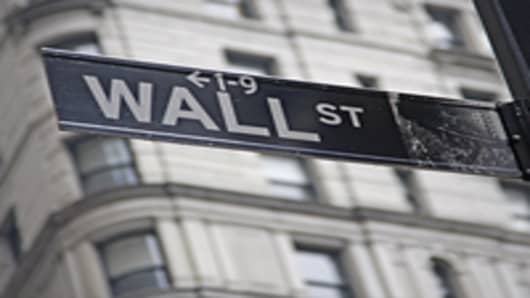Lower rates don’t make that much difference anymore, and in between bouts of market volatility, investors can actually get back to stock picking, Dinakar Singh, founder and CEO of TPG-Axon Capital, told CNBC’s “Squawk Box” on Monday.
“I think what central banks everywhere are doing is trying to make sure people are not focused on the world breaking apart,” he said.
But, Singh added, there aren’t that many people left who haven’t borrowed money but would if rates were a little bit lower. “I think the other issue is if you get rates much lower, you do some damage to insurance companies and others that depend on income,” he cautioned.
Singh said investors have been intensely focused on whether markets are going up or falling apart. “The reality is we have years of in between," he said. “It’s a tough restructuring world.” (Read More: What Can the Fed Do? 5 Possible Steps.)
TPG-Axon’s general view is that there will be peaks and valleys in the volatility and uncertainty, Singh said. “There will be moments when markets are stressed, and all that matters is what policymakers are doing and then things will settle down and you can actually get back to stock picking,” he said.
By market cap, TPG-Axon’s biggest underweight is Europe and the biggest overweight is Japan. “Japan is the dog right now,” Singh said. “It was up a lot in the beginning of the year and now up 4-5 percent.”
Singh likes the corporate restructuring story playing out in Japan as companies realized that the government is not going to save them, and they needed to streamline their operations. “You look the last five, 10, 15 years, Japanese companies used to be the worst,” he said. They had the lowest margins, absolutely no focus on shareholders and didn’t earn very much money. (Read More:Japan GDP Revised Down, Builds Case for Stimulus.)
Over the last five or six years, however, Japanese companies have restructured, and profits have gone up even though the yen remains strong, Singh noted. “Unlike any time in our business life, you can look at Japan and find plenty of companies with 4 or 5 percent yields, multiples at 10 or 11 times earnings and one of thefew places in the world where margins have room to go up.”
When you look at individual stocks you can find plenty that are cheap and earnings are still growing, Singh said. “Top-line growth is tough to find so you’ve got to find a structural niche, or restructuring or use of balance sheet. One of those three are the only way you’re going to find earnings growth.”
He also suggests examining where investors are and aren’t when looking for opportunities. For investors, Europe and financials have been the big underweights so far. Singh doesn’t believe that Europe is cheap or a big opportunity. While there are good and bad stocks, Singh said “I don’t think apples to apples, Europe is cheaper than the U.S.”
Financials, however, are worth revisiting selectively. Singh is short regional banks because their valuations have done well and earnings are heading lower. “Margins are fat and credit costs are low so both are going to move the wrong way over time. They're well managed, have plenty of capital, but earnings are going down,” he said.
Instead, Singh expects earnings to pick up at big banks like Morgan Stanley , JPMorgan Chase , and Goldman Sachs . “The global-money-centered banks have been the dogs of the markets last six, 12 months," he said. But Singh said they look attractive on seven, eight times for earnings that will grow and for balance sheets that are in pretty good shape.
Singh also sees some value in health care. “Health care's the sector where people have been stepping back for a while — too much changing, everything's been up in the air,” he said. (Read More:Investors in Health Care Seem to Bet on Incumbent.)
Hospitals, in particular, have gotten beaten up because they’re affected by government cutbacks. But Singh said, “Hospitals aren't going away anytime soon. If anything at this point, you've seen the worst when it comes to state cutbacks and if Obamacare were to happen, there's a massive kick in terms of spending. If it doesn’t happen they’re still pretty cheap.”




